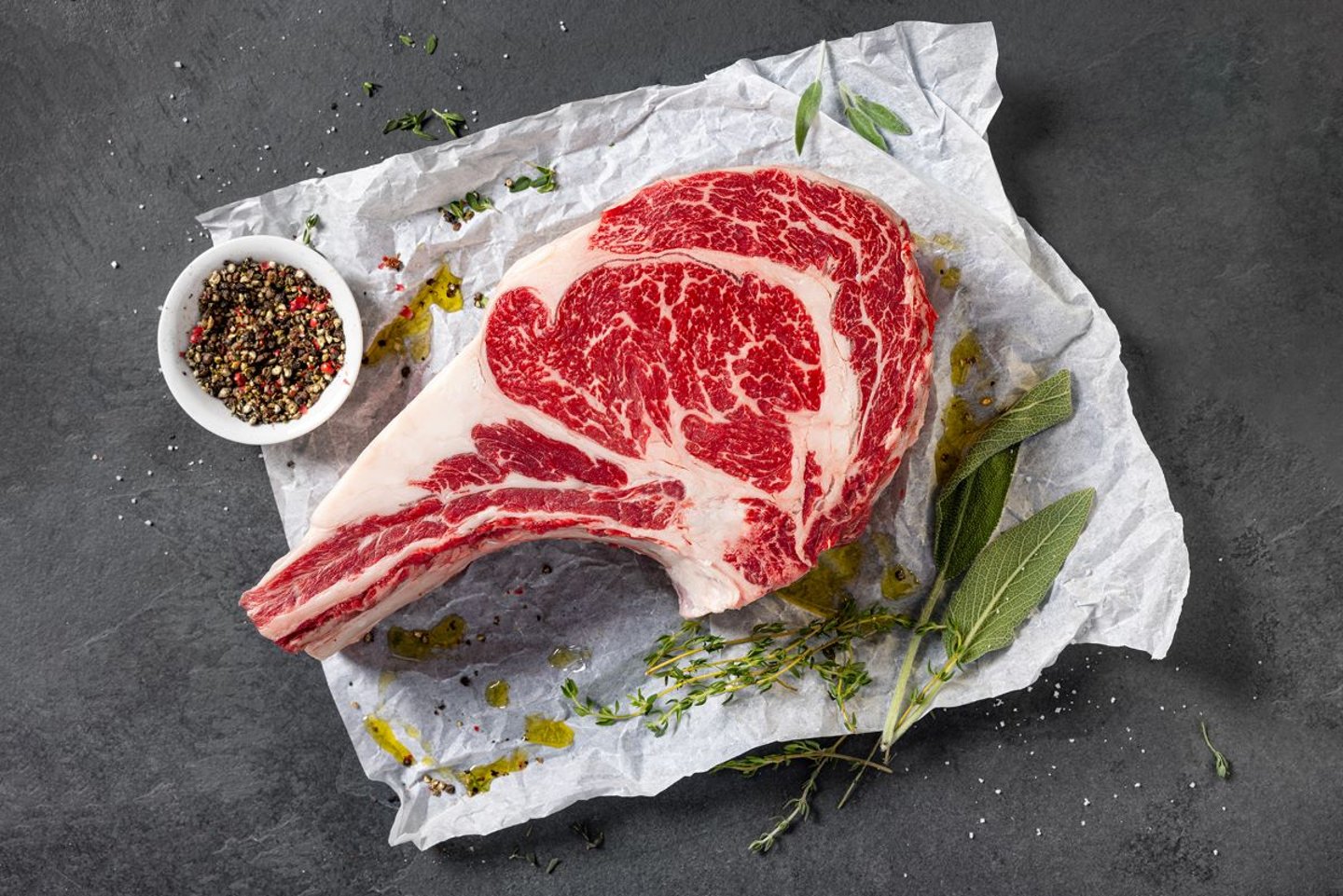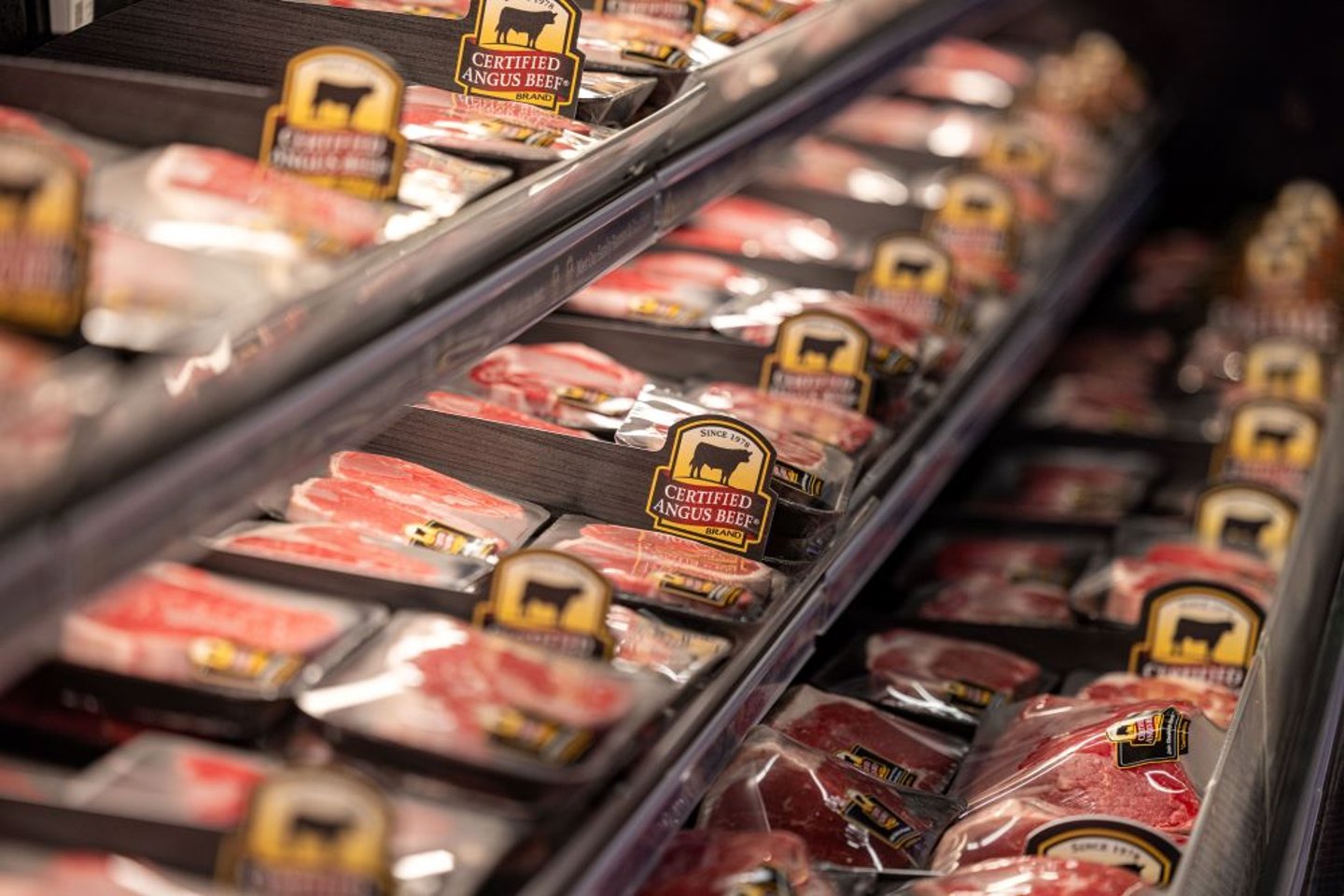Consumers Demand Transparency in Protein
It’s clear: consumers want transparency in protein, and those in the supply chain are working to provide it.
Various research studies support the widely held notion that people are increasingly interested in knowing how their foods are produced. According to the latest transparency trends report released by Arlington, Va.-based FMI – the Food Industry Association and Chicago-based insights firm NIQ, 76% of grocery shoppers say that transparency is important to them, up from 69% in 2018. Another new survey, from Rahway, N.J.-based Merck Animal Health, found that two-thirds of consumers describe transparency in animal protein as “extremely” or “very” important.
[Read more: "Exploring the Protein Boom: The Main Ingredient Dominating Grocery Shelves"]
Transparency in protein covers different facets of production and consumption throughout the farm-to-fork chain, from land stewardship to humane handling to packaging and waste. The 2023 “Power of Meat” study from FMI and the Meat Institute affirmed the importance of different (and sometimes concurrent) factors, revealing that 85% of meat consumers take into consideration at least one of the four areas of health, animal welfare, plant or social responsibility when buying meat and poultry.
Younger consumers tend to place a higher priority on openness, underscoring the longer-term implications of this mindset. A 2023 food and health survey from the Washington,, D.C.-based International Food Information Council (IFIC) showed that Millennials are most likely to care about the sustainability impact of their purchases, followed by Gen Z.
David O’Diam, VP of retail at Certified Angus Beef, based in Wooster, Ohio, agrees that transparency has become table stakes. “It’s been exciting to see such a passion for sustainability come into focus in our industry over the last few years, and I think a lot of that is consumer driven,” he notes. “We know that today’s shoppers want to know more about their food: where it comes from, how their beef was raised and more about the people who dedicate their lives to providing high-quality beef.”
Making a Point of Transparency
As consumers seek out protein products that align with their values, they are getting more choices from brands and retailers. Many new products, especially those from natural and organic brands, feature on-pack information with details about the path that the item took to get to the case and to a shopper’s home.
Pure Prairie Poultry, of Charles City, Iowa, is one example, conveying messaging through its “Pure” name and on-package language that includes the descriptor “air-chilled,” along with such terms as “all natural,” “no antibiotics – ever,” “100% vegetarian fed” and “no animal byproducts.”
“In addition to our products, we want consumers and customers to get to know us from the inside out,” says Brad Vokac, VP of sales and marketing. “Along with our pure, quality offerings, consumers will appreciate that our farmer partners have ownership in Pure Prairie Poultry. This is something unique to the industry, and it reinforces our commitment to our relationships.”
Seaboard Foods, based in Shawnee Mission, Kan., also puts knowledge front and center. One tagline for the company’s line of Prairie Fresh pork is “It’s good to know where your food comes from.”
On its website and other digital platforms, Seaboard highlights its connected food system based on collaboration among farmers, processing plants and supply chain colleagues to control each step in the production process. The company’s messaging outlines its animal care protocols, specially formulated feed program and state-of-the-art processing facilities, among other practices and commitments.
“Our deep meat knowledge, marketing support and data-driven consumer insights are the foundation to our partnership,” observed Pat Watkins, VP, retail sales for Seaboard Foods, in a recent blog post. “We know that keeping your shelves stocked with quality pork is how you keep shoppers happy. And that’s what we’re here to help you do.”
In addition to individual processors and brands, breed-based organizations also make a pointed effort to be transparent to consumers and to retail and foodservice partners. Certified Angus emphasizes the certification of beef products that carry the Angus descriptor, noting that every cut of beef is evaluated on 10 stringent quality standards.
“When it comes to animal care, the right way is the only way,” asserts O’Diam. “That’s why we promote Beef Quality Assurance (BQA), the gold standard program for animal care. We encourage our farming and ranching partners to become BQA certified to help tell their story about their commitment to cattle care. Currently, we’re working with the beef community and partners to bolster BQA awareness and co-host events across the U.S.”
He adds: “We have new labels on our packaging that highlight our sustainability efforts, and we work with retailers to share the stories of their local farmers or ranchers raising the best beef.”
[Read more: "The Stakes Are Higher Than Ever for Supermarkets to Source More Responsibly"]
As protein organizations use their consumer-facing channels to help people make informed decisions, grocers are tapping into their own resources to enhance transparency with shoppers. Austin, Texas-based Whole Foods Market, for its part, publicly shares its standards for proteins, including quality standards for meats and eggs, and welfare standards for broiler chickens.
At the top of Whole Foods’ list for meats: transparency and traceability to farm or ranch, followed by no antibiotics ever; no added growth hormones through feed, injection or other methods; and 100-plus animal welfare standards for fresh beef, pork, lamb, chicken and turkey. The retailer is also clear about its support for the Better Chicken Project from the Austin-based Global Animal Partnership, which has created research-based protocols for evaluating broiler chicken breeds, based on behavior, meat quality, production and welfare outcomes.
Natural Grocers by Vitamin Cottage, a chain based in Lakewood, Colo., also puts out details for transparency-minded shoppers. The food retailer has devised a ranking system for its fresh and frozen meats: The bronze ranking means that products are humanely raised and sustainably farmed or sourced, while silver and gold rankings include the bronze requirements related to animal welfare, drugs and antibiotics, and other environmental practices, along with more regenerative farming practices.
Some retail operations are upping their standards for protein suppliers in the wake of growing consumer expectations and demands. In December, Ahold Delhaize updated its climate plan, noting that it’s working with suppliers to reduce the carbon footprint of local brand assortments, including proteins. Among other efforts, the Zaandam, Netherlands-based retail business recommends offering lower-emission protein sources like plant-based alternatives to traditional animal proteins.
Store brands can also be a platform for transparency. For instance, Minneapolis-based Target Corp.’s line of Good & Gather deli meats are sold in packages declaring that no nitrates or nitrites have been added and that the products are made without artificial flavors or preservatives. Simply Nature organic chicken breast from ALDI, whose U.S. headquarters is in Batavia, Ill., are described as Certified USDA Organic, free-range, antibiotic-free and a product of the USA, as well as featuring the Good Housekeeping Seal of Approval.
Supply Chain Collaboration and Innovation
While brands and grocers engage consumers directly, other entities in the supply chain work in their own respective ways to foster transparency in protein.
Certification is a cornerstone of transparency. In the plant-based space, Emeryville, Calif.-based third-party certification group SCS Global Services offers a Plant-Based Certification Program that distinguishes plant-based brands based on rigorous auditing, testing and labeling standards.
FoodChain ID is another organization that provides certification and auditing services for products deemed Organic, Non-GMO Project Verified, Plant-based and Vegan. In December, Fairfield, Iowa-based FoodChain ID acquired Organic Certifiers, one of the first certification bodies accredited in the United States for the USDA National Organic Program to include proteins.
As technology advances, tech providers are helping protein industry stakeholders improve transparency, especially through traceability. The advent of QR codes allows consumers to scan a protein product at the point of sale to learn more about that product and even the farmer or rancher who raised the animal. Going forward, brands and retailers are likely to harness artificial intelligence for a two-way information exchange with shoppers on proteins that meet their personal value standards.
Finally, partnerships within the protein sector help shore up transparency, too. For instance, the Protein PACT is a collaborative effort that unites supply chain sustainability efforts demonstrating progress from farm to fork in a data-driven, transparent way.
“It started as a partnership with meat, poultry, dairy, feed and animal health participants, but over the last year has expanded to engage retailers, restaurants, international organizations and NGOs all aligned on the common interest of demonstrating progress in ways that are aligned with consumer values and global goals,” explains Eric Mittenthal, chief strategy officer for the North American Meat Institute (NAMI), in Washington, D.C. “No single company or sector can achieve ambitious goals alone, so there has been a great deal of enthusiasm for partnering that we expect will only continue to grow.”
According to Mittenthal, through the Protein PACT, NAMI has pioneered the first-ever industry dataset on more than 90 metrics that transparently shows how the industry is progressing toward ambitious goals and supporting healthy people, healthy animals, healthy communities and a healthy planet.








